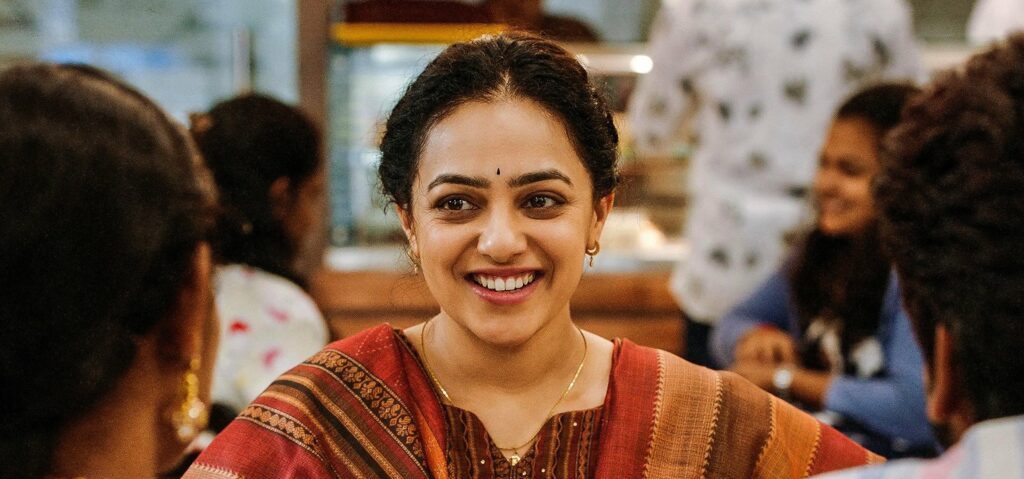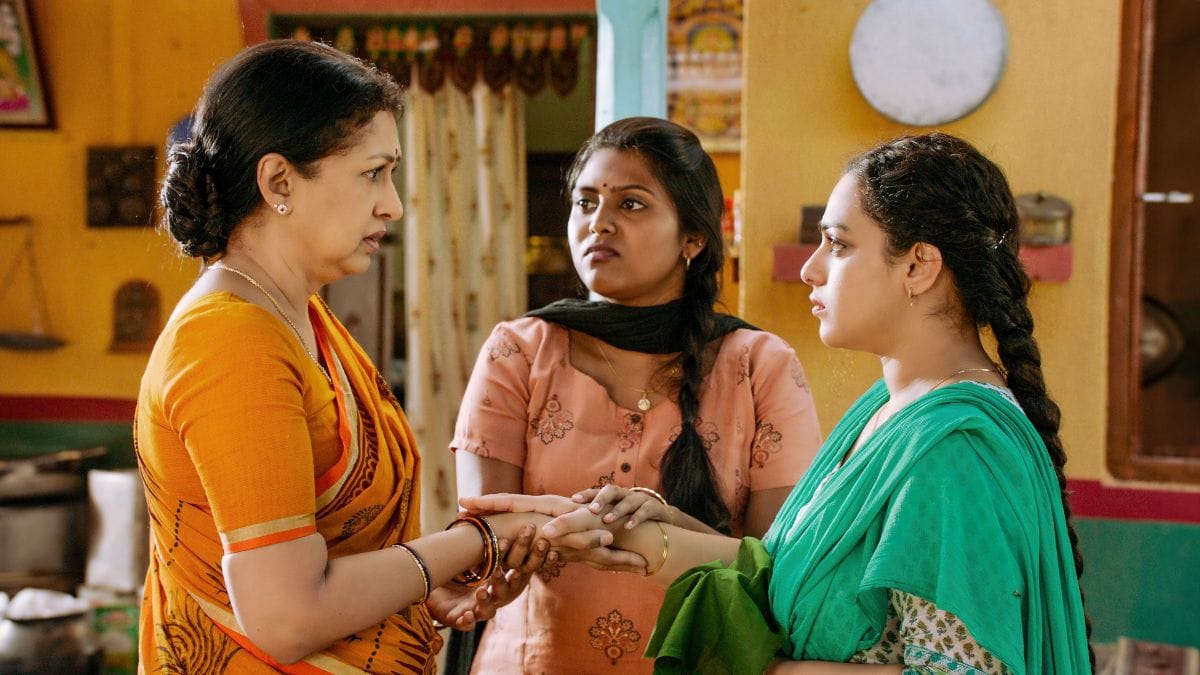Created by Srinivas Avasarala, ‘Kumari Srimathi’ is an Indian Telugu-language drama series that delves into the life of its eponymous protagonist. It revolves around Srimathi, a 30-year-old unmarried woman facing a stagnant job, a fractured family, and a fervent desire to reclaim her ancestral home. To achieve her goal, she embarks on a daring journey, one that necessitates raising a substantial sum of money in a limited time frame.
Recognizing a business opportunity, she takes the bold step of establishing a bar in her village. With a stellar cast that includes Nithya Menen, Gauthami, Thiruveer, and Nirupam Paritala, the series chronicles the compelling journey of Srimathi as she confronts a host of societal and ethical challenges along her path to redemption. If the relatable story and the authentic portrayal make you wonder if ‘Kumari Srimathi’ is inspired by fact or a work of fiction, we’ve got you covered. Here’s all you need to know.
Is Kumari Srimathi Based on a True Story?
No, ‘Kumari Srimathi’ is not based on a true story. The narrative has been conceived by the creative minds of Avasarala, along with Uday Aghamarshan, Jayanth Tadinada, and Kaushik Subrahmanya. Having said that, it is an accurate and harrowing depiction of woman entrepreneurship in rural India and the disdainful hurdles breeding from the patriarchy that follow. In the show, Srimathi passionately endeavors to reclaim her family’s ancestral property from her uncle. When the judge values the property at 38,00,000 INR and offers Srimathi the option to purchase it by paying the same amount, she makes the bold decision to abandon her job and establish her own restaurant and bar in the village.

Through unwavering determination and hard work, Srimathi eventually succeeds in not only running a successful business but also paying off her uncle’s debt to regain her family’s cherished property. Diverging from most contemporary narratives, the protagonist of this series harbors no extravagant ambitions; her sole objective is to safeguard her ancestral homestead. To achieve this, she ventures into the establishment of a bar and restaurant in her village.
The series unfolds within an unconventional rural town in southern India, enveloping itself in a rooted realism that lends an aura of authenticity akin to a genuine account. The setting not only facilitates an authentic portrayal of cultural subtleties and societal hindrances but also infuses a refreshing essence into the storyline. The picturesque simplicity of the dwellings, the unpretentious way of life, and the close-knit communal bonds all synergize with the earnest performances and a spectrum of emotions, imbuing the narrative with depth and verisimilitude.
The real life counterparts of Kumari Srimathi can be inspired by a rural female entrepreneur called Chetna Sinha, the founder of the Mann Deshi Mahila Bank. Hailing from Mhaswad in rural Maharashtra, she established a cooperative bank exclusively for women, empowering them with financial independence and entrepreneurial opportunities. Another notable figure is Binal Doshi, a farmer from Gujarat who transformed her family’s traditional pickle business into a thriving enterprise called Braggart. Through her innovative approach and dedication, she expanded the business, providing employment opportunities to women in her village and promoting sustainable agricultural practices. Both women, akin to Kumari Srimathi, have demonstrated resilience, creativity, and determination, serving as inspiring examples of rural female entrepreneurship in India.
At its core, the Amazon Prime production scrutinizes the tug-of-war between tradition and modernity as Srimathi strives to establish a bar and restaurant in her village. This exploration of the societal and ethical dilemmas she encounters within a conservative society enriches the storyline of ‘Kumari Srimathi,’ all the while offering audiences moments of heartfelt laughter.
Read More: Shows Like Kumari Srimathi


You must be logged in to post a comment.